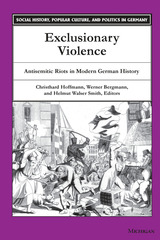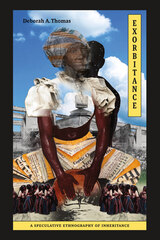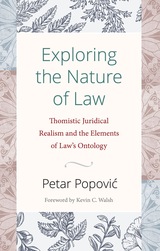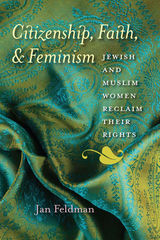
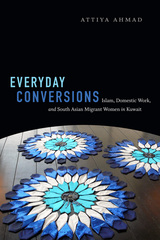

Focusing on the 1990 Iraqi invasion of Kuwait, Hamdi Hassan offers a balanced examination of the motivation of the Iraqi polity and the conditions which accelerated and facilitated the decision to invade. Critical of the traditional approach of most Middle East studies, The Iraqi Invasion of Kuwait offers a counterpoint to Western interpretations of this key event in the contemporary history of the Middle East.
Hassan examines how Saddam Hussein assessed and responded to American and Israeli intentions after the invasion, the reaction of other Arab states, and the unprecedented grassroots support for the Iraqi leadership. In this context, the author examines the social structure of Iraqi society – families, clans and regional alliances – and the importance of Ba’athism. Hassan also examines the political structure of the country, relating the identity of Arabism – the religion and language which is associated closely with the Pan Arabist ideals – to Iraqi foreign policy.
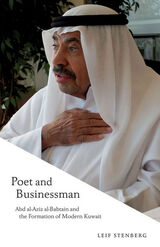
This book reviews and analyzes the modern history of Kuwait through the life of Abd al-Aziz Sa‘ud al-Babtain, a wealthy businessman, philanthropist, and poet. He is the head of a large, influential international cultural foundation based in Kuwait City. Abd al-Aziz’s life story tightly interweaves with modern discussions on the history of the state of Kuwait. There are very few books taking a collective grip on the history of the state of Kuwait. Likewise, there are very few studies about the generation of Gulf individuals who experienced, benefitted from, and even suffered from the discovery of oil, and who has been a crucial part of socioeconomic and cultural developments in countries like Kuwait in recent history. By constructing a cohesive overview of the modern history of Kuwait enriched by the life of an individual that has lived through the better part of that particular history, this book fills a lacuna in contemporary scholarship on the Middle East, and especially the Arabian or the Persian Gulf.

Saaq al-Bambuu (The Bamboo Stalk) by Kuwaiti novelist Saud al-Sanousi provides students at the intermediate-advanced Arabic language level the opportunity to engage with an award-winning work of contemporary fiction. This abridged version has been approved by the author, authenticating the richness of a text that offers students the means to develop vocabulary and reading fluency while sensitizing them to the stylistics of the language.
The novel is a coming-of-age story of a half-Filippino, half-Kuwaiti teen who returns to his father's Kuwait. There, he explores his own identity as a poor Filipino in a culture he does not know well and receives a mixed welcome from his own wealthy relatives. Universal concepts of identity, faith, belonging, poverty/wealth, and otherness are explored through a poetic narrative and engaging plot that will keep students captivated from the first line to the very last page.
Included within the book are chapter exercises that develop linguistic and cultural competencies, a short biography of the author, and glossaries of literary terms and devices. As with Laila Familiar's Sayyidi wa Habibi, this authorized version of the abridged text by a contemporary Arabic author will be warmly embraced by college and university students of Arabic as well as by independent learners.
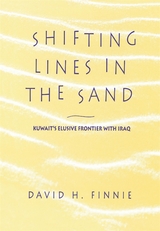
During the 1991 Gulf War, pundits and experts scrambled unsuccessfully to explain Iraq's “claim” to Kuwait. In a lucid and measured account of a complex historical and geographic drama that culminated in Operation Desert Storm, David Finnie elucidates the long Kuwaiti-Iraqi border dispute and lays Saddam Hussein's dubious claim to rest. He also raises larger questions about European colonialism and about the creation of new nation-states in the Middle East in the nineteenth and twentieth centuries.
Finnie vividly portrays how arbitrary the drawing of frontiers can be, and how they come to serve internal, regional, and international rivalries and ambitions. This history begins in the eighteenth century, when Kuwait was first settled by nomads from the Arabian desert. Finnie describes the country's growing prosperity under a merchant oligarchy, then shows how the Kuwaitis, seeking British protection from the sprawling Ottoman Empire, came to serve England's imperial strategy. He details the ways in which Britain parlayed its mandatory control of Iraq and its protectorate over Kuwait to curb the larger nation's ambitions and to ensure Kuwait's independence under British auspices.
A fresh look at British diplomatic documents reveals how Whitehall covered its tracks, heading off the Iraqis, obfuscating League of Nations proceedings, and confounding scholars and researchers down to the present day. Pursuing his story through Britain's withdrawal from the Persian Gulf and Iraq's 1963 recognition of Kuwait's boundaries, Finnie examines the U.N. post-war measures to secure the frontier in the face of Iraq's continuing pressure for better access to Gulf waters.
READERS
Browse our collection.
PUBLISHERS
See BiblioVault's publisher services.
STUDENT SERVICES
Files for college accessibility offices.
UChicago Accessibility Resources
home | accessibility | search | about | contact us
BiblioVault ® 2001 - 2025
The University of Chicago Press



